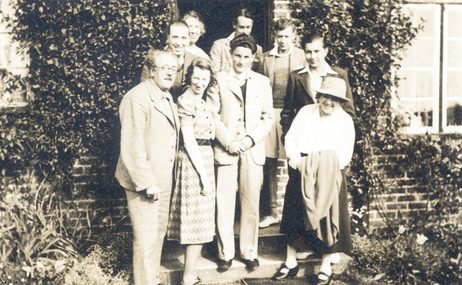Presented by director William Kerley
Between Billy Budd (completed in 1950) and his next large-scale opera Gloriana (1953) Britten attempted various other operatic projects, including an adaptation of Beatrix Potter’s A Tale of Mr Tod and a children’s opera with a sci-fi theme, Tyco the Vegan. The former stalled because of copyright problems with the Potter estate; and interest in Tyco became diverted by the prospect of a work with a royal theme: a project that resulted in Gloriana. As William Kerley recounts in this week’s film, the idea was conceived during a skiing holiday with Lord and Lady Harewood in Gargallan, Austria: Lord Harewood had been reading Lytton Strachey’s Elizabeth and Essex, and the Tudor monarch’s relationship with the Earl of Essex seemed a tempting subject matter. William Plomer, the collaborator on the two earlier attempts, was commissioned to write the libretto based on Strachey’s narrative. At some point during the process, the idea occurred to link Elizabeth I to the brand new Elizabeth II, coinciding with her forthcoming coronation. Britten received permission to dedicate his new work to the Queen, and it was premiered with a royal gala performance at Covent Garden in June 1953.
The premiere of Gloriana has gone down in opera history as something of a public disaster: the critics were not kind, and the audience appeared to be lukewarm, including the opera’s dedicatee. (There is some evocative Pathé news footage of the crowd arriving at the premiere, in full pomp and regalia.) Yet the subject of an ailing, aging queen, sending her beloved favourite to his death is not the most celebratory, or what a royal gala audience might have expected given the occasion. Britten was wounded by the critical reception it received, and notably there was no recording made under his auspice. The opera was revised somewhat in 1966, and there were performances after the premiere, but Britten referred to it as his ‘slighted child’. In more recent years, it has seen something of a resurgence and – like all of Britten’s stage works – has become part of the repertoire of many major opera houses. And there is much to enjoy and admire in this score – a beguiling and typically Brittenesque mixture of orchestral vivacity, rhythmic energy, high drama, and shot through with a pervading sense of melancholy.


